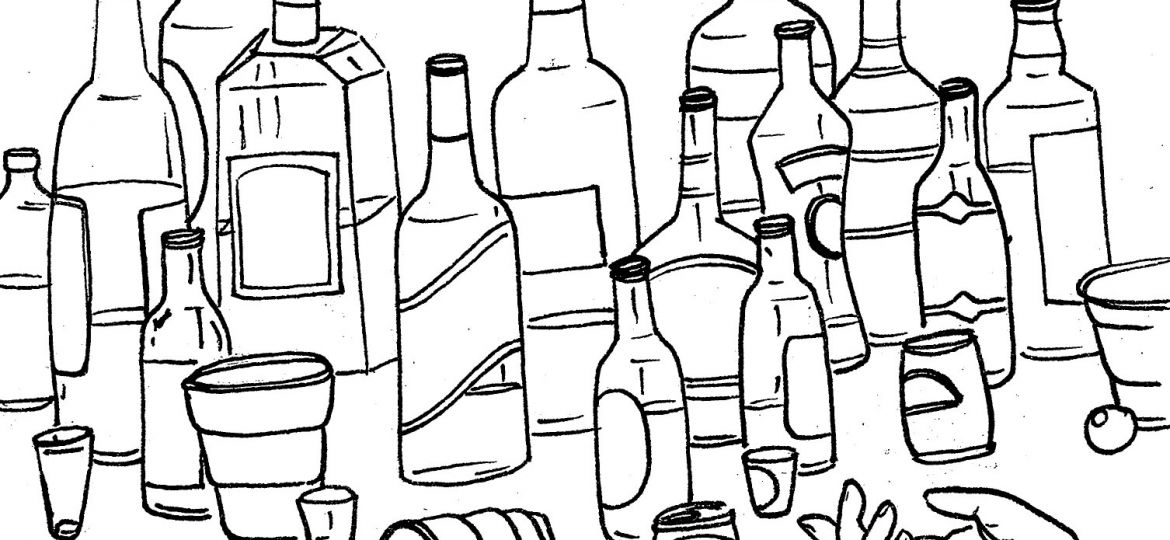
Illustration by Rachel Gessner/The Olaf Messenger
St. Olaf has been a dry campus since its founding, as all its students are well aware. Students are also well aware that this policy is controversial; in modern times, the prevailing attitude on campus is that the dry campus policy is outdated and somewhat useless — St. Olaf students disregard the policy often, typically facing no consequences.
But a look into the Messenger’s archives reveals changing attitudes towards the dry campus. St. Olaf’s administration certainly used to be more conservative. In the early days of the college, dancing was banned, along with playing Euchre. It seems that many students used to agree with these conservative rules. This can possibly be traced back to the Prohibition movement, which, with its origins in Lutheran churches, was certainly popular at St. Olaf.
In 1888, the College’s Prohibition Club had over 40 members, according to an article titled “College Crumbs.” In the 1910s, the Messenger published numerous prize-winning speeches from the State Prohibition Contest, speeches featuring quotes such as “Every organization fighting liquor contributes its portion to the ultimate overthrow of King Alcohol” (N.L. Otterstad, 1909 graduate). A 1913 article describes that year’s contest: “a large aggregation of the student body was present [in Hoyme Chapel] as loyal supporters of their representative and as attentive listeners to the various ways in which the different orators treated [the] subject.”
A 1912 article titled “Reviving the Prohibition Club” celebrates the club’s growth and says that the Inter-Collegiate Prohibition organization “affords to the members of its branch organization an unequalled opportunity for those interested in public speaking,” suggesting that the Prohibition movement at St. Olaf had become very institutionalized and was largely just a default option for students seeking public speaking recognition.
The most famous instance of Oles supporting in Prohibition movement is the Volstead Act itself — yes, the act of Congress that enforced prohibition was introduced by Minnesota congressman and former St. Olaf College student Andrew Volstead. It appears that, in 1920, some students at least attempted to create a “Volstead Club” in celebration. This club was controversial, though. A 1920 Messenger article claims that the church leaders at St. Olaf were uncomfortable with the founding of the club for unclear reasons to do with church politics.
The end of Prohibition seems to have been met with negative responses as well. In a September 1993 speech printed in the Messenger, President Boe urged students and Minnesota voters to “stand alone” and said that “Befuddling America’s mind with liquor in the face of the present crisis is close to treason.WE WILL HAVE NO PART IN IT.”
But despite Boe’s strongly-worded warnings, the cultural tide turned relatively quickly when it came to campus feelings about alcohol. By the 1970s, most op-eds in the Messenger were anti-dry campus, and in 1976, the Student Government Association (SGA) convinced President Rand to formally review the alcohol policy. While this review did not culminate in a repeal of the alcohol ban, it seems to mark a cultural shift in the prevailing attitudes towards the dry campus. St. Olaf students and administrators no longer express passionate support for the alcohol ban, and instead seem to have resigned themselves to a policy that is often viewed as slightly outdated, but not majorly harmful.

